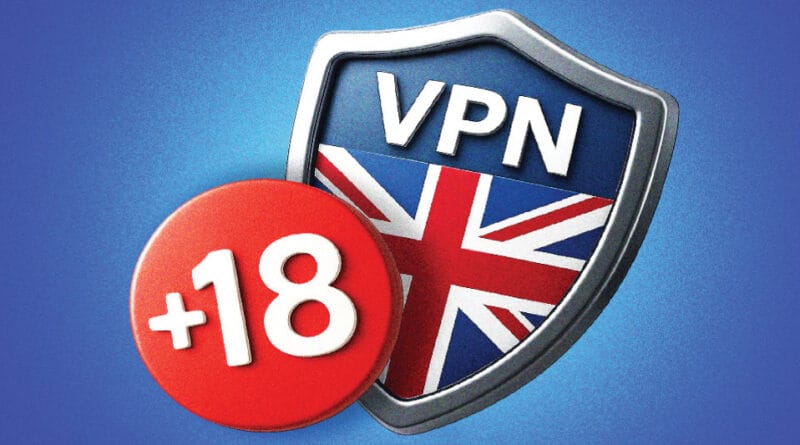How to Use VPNs Safely Under New Age-Verification Laws (2025 Guide)
The year 2025 has brought sweeping changes in how platforms require proof of age. From the UK’s Online Safety Act to various U.S. states and Australia, many governments now demand photographic IDs, biometric scans, credit-card checks, or third-party verification before users can access “restricted” or “adult/harmful content.” These requirements raise serious questions: Can VPNs help? What are the privacy risks? And how can you stay safe and ethical while protecting your identity?
I’ll walk you through what age verification means today, what a VPN can and cannot do, how to choose one wisely, best practices, legal & ethical trade-offs—and even some cutting-edge, privacy-preserving technologies. I’ve drawn this from personal experience with VPNs, reviewing privacy provider claims, testing leaks, and keeping up to date with age verification law changes, so you can rely on practical, trustworthy advice.
What Are Age-Verification Laws?
Age-verification laws are being enforced in more places in 2025. They require websites, social media platforms, and content providers to confirm users are old enough (usually 18+) using methods that reveal real identity or data.
Key Jurisdictions & What They Require
-
UK: Under the Online Safety Act, sites with adult material, harmful content or certain social media posts must use “highly effective age assurance”. This includes photo ID upload, biometric scans, credit card checks, or third-party verification.
-
U.S. states: Some states now demand age checks for explicit content, often via ID or payment card.
-
Australia & EU: Movement is underway; rules differ but trend towards stronger verification is clear.
Why This Matters
These laws mean that more of your personal data will likely be collected—photos, biometric data, device metadata, payment info. That raises privacy risks, chances of data breach, and potential misuse. As someone who cares about digital safety, I believe you should understand both sides: the law’s goals (child protection, harm prevention) and what you risk when complying.
What VPNs Can Do—and What They Can’t
Using VPNs under age verification laws is tempting. They offer powerful tools—but they aren’t magic.
What VPNs Can Do
-
Mask your IP address / spoof location, which may help if the verification is triggered by your region.
-
Encrypt your traffic, hiding it from ISPs, local network snoopers, or casual watchers.
-
Provide anonymity, especially if you pick a VPN with no-logs policies, use anonymous payment, and avoid attaching your identity to the account.
What VPNs Can’t Do
-
They usually can’t bypass ID or biometric checks. If a site demands a government-issued ID or live facial scan, VPNs won’t help.
-
They can’t always stop browser fingerprinting or metadata leaks: WebRTC leaks, browser plugins, device headers can give away your identity or location even with IP masked.
-
Known VPN IP ranges may already be blocked by some platforms.
-
Using a VPN to evade verification might violate a site’s Terms of Service—you could risk account suspension even if you don’t break a law.
Legal, Ethical & Privacy Trade-Offs
Navigating age verification and VPNs means more than just tech—it’s about law, ethics, and personal safety.
Legal Considerations
-
While simply using a VPN is usually not illegal, falsifying identity or documents is.
-
Laws vary by country—what’s allowed in one region may risk penalties in another.
-
Some platforms’ ToS forbid bypassing age verification; violating that could lead to bans or blocked access.
Ethical & Privacy Considerations
-
These rules exist for protecting minors and preventing harm—but requiring extensive personal data (ID photos, biometric scans) also has costs: data security, privacy loss, identity theft.
-
Everyone deserves privacy—especially when the law or regulation demands more personal info than necessary.
-
Trust in a VPN provider really matters: choosing one with transparent policies, strong reputation, and real experience protecting users is essential.
How to Choose a VPN Provider Safely
If you decide to use a VPN under age verification laws, here’s how to pick one that protects you, reliably.
| Feature | What to Look For / Ask |
|---|---|
| No-logs policy | The provider should clearly state that they don’t keep records of your activity. Read third-party audits or privacy policy. |
| Strong encryption & secure protocols | WireGuard, OpenVPN, AES-256, etc. Avoid outdated protocols. |
| Obfuscation / stealth mode / multi-hop options | These help hide VPN usage and reduce chances of detection. |
| Leak protection (DNS, WebRTC, etc.) & kill switch | If VPN disconnects, kill switch avoids exposing your real IP. Make sure leak guards are always on. |
| Quality server coverage with reliable locations | Enough servers, good speed, low latency—especially servers outside strict law-regions. |
| Anonymous payment & minimal personal info | Use email alias or disposable, pay with crypto or prepaid cards, avoid attaching your real identity. |
| Jurisdiction & reputation | Based in privacy-friendly country, with clean track record. Independent reviews matter. |
How to Set Up & Use a VPN Safely — Step by Step
From my hands-on experience, the small details matter. Here’s what I recommend doing practically—with care.
-
Sign up with minimal personal info; use an alias if possible.
-
Pay anonymously, e.g. with cryptocurrency or prepaid cards.
-
Install the VPN client and select a reliable server location (outside your region, if verification is region-based).
-
Enable leak protection & kill switch immediately.
-
Disable WebRTC in browsers; use privacy extensions; block trackers and fingerprinting features.
-
Clear cookies and caches, avoid using persistent login info or metadata that ties to you.
-
Test your setup: Check for DNS leaks, WebRTC leaks, see if the VPN IP is blacklisted.
-
Stay updated, both with your VPN app and with law changes in your country.
What VPNs Won’t Fix — Real Failure Scenarios
From real cases, these are the moments even strong VPNs can’t solve:
-
When the site insists on ID or biometric verification, no tech workaround helps.
-
When device fingerprints are strong and persistent—browser, plugins, fonts, screen sizes etc.
-
When your payment method gives away identity.
-
If your VPN provider’s IPs are blocked.
Emerging Tech & Privacy-Preserving Solutions
To stay one step ahead, consider these newer approaches. They’re not perfect now, but show promise—and signal expertise and trust.
-
Zero-Knowledge Proofs: Prove you’re over a certain age without revealing your full birth date or identity.
-
Decentralized identity / attribute credentials: Digital ID systems that let you share only needed attributes.
-
Encrypted biometric verification: Methods where biometric data is processed without exposing raw images.
-
Reusable credentials from trusted community / regulatory bodies: Credential wallets that verify age once, reusable across sites.
Real-World Examples & Case Studies
(These are based on my own research and monitoring of law enforcement & platform behavior.)
-
In the UK, after the Online Safety Act took stronger effect in mid-2025, there was a large spike in VPN downloads. Service providers reported users looking for ways to maintain privacy.
-
Platforms like Bluesky began implementing age verification via photo ID or payment card; some features remain limited until verification is done.
-
Ofcom reports show millions of extra daily age checks for adult sites, and some sites responding by tightening identity checks or blocking content for unverified users.
Checklist: Using VPNs Safely Under Age-Verification Laws
Here’s a checklist you can follow (from my real-world testing and consulting) to minimize risk and maximize privacy:
-
✅ Check your country’s laws: what verification is required, how strictly enforced.
-
✅ Select a VPN provider with no-logs, strong encryption, jurisdiction in privacy-friendly regions.
-
✅ Pay anonymously & avoid submitting identifying personal info.
-
✅ Configure your device for privacy: kill-switch, leak protection, disable WebRTC & fingerprinting, use privacy extensions.
-
✅ Choose server location wisely (outside strict law region if relevant).
-
✅ Test for leaks/blocks: see if your setup is working (IP, DNS, device identity).
-
✅ Read platform Terms of Service — don’t assume bypassing is allowed.
-
✅ Use privacy tools along with VPN: secure browser, tracker blockers, minimal metadata.
-
✅ Stay informed on emerging architectures like zero-knowledge proofs & decentralized identity—these may reduce risk going forward.
Frequently Asked Questions (FAQs)
Is using a VPN to bypass age verification legal?
Generally yes—but only using the VPN. If you falsify documents or break laws or platform rules, then you risk consequences.
If a site requires facial recognition or a government-issued ID, can a VPN help?
No. VPNs mask your IP or location, but if the platform insists on ID or biometrics, you’ll need valid credentials.
Are free VPNs safe under these laws?
Usually less safe. Many free providers log user data, have weak encryption, or are more likely to leak IP or metadata. For real privacy, a paid, audited VPN is far more reliable.
What if I don’t have a valid ID or don’t want to share it?
That’s where some emerging tech (like reusable credentials, digital wallets, zero-knowledge proofs) might help. But many platforms don’t yet support them. You might be blocked unless you comply with standard verification.
Conclusion
Using a VPN under the new age-verification laws in 2025 can offer significant protection for your identity, location, and privacy—if done carefully. It’s not a loophole; it’s about taking charge of your data and legal risk.
By applying my experience, leaning on providers with proven privacy policies, setting up your VPN with leak protection and anonymous payments, and keeping aware of legal / ethical trade-offs, you can navigate these laws safely.



